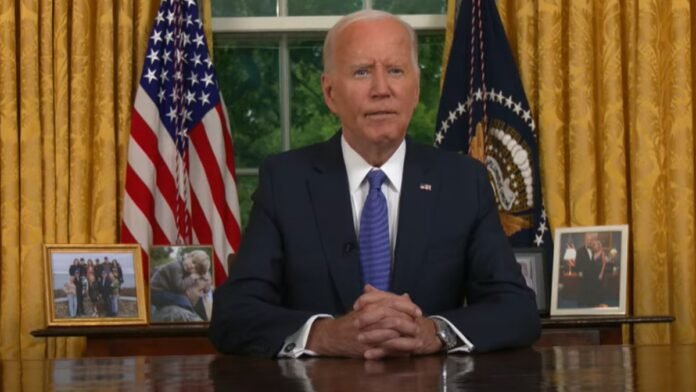
New Delhi: On the night of October 1, Iran launched a significant military offensive against Israel, firing 180 missiles in a surprise attack. Israel, caught off guard by the intensity of the strike, responded with immediate calls for retaliation. Prime Minister Benjamin Netanyahu declared that Israel would defend itself, while international allies, including the United States, expressed support for the embattled nation.
Biden’s Conditional Support for Israel
However, U.S. President Joe Biden, while offering solidarity with Israel, drew a clear line regarding the nature of its response. Biden stated that any attack by Israel on Iran’s nuclear facilities would be “unacceptable” and would not receive American backing. He reiterated that while the U.S. stands with Israel, actions targeting Iran’s nuclear program would escalate the conflict beyond control. This firm stance complicates Netanyahu’s potential military strategy, as Israel weighs its options in responding to the missile barrage.
When asked on Wednesday whether the U.S. would support Israel’s retaliation for the missile strike, Biden’s response was clear: “The answer is no,” referring to any potential attack on Iran’s nuclear infrastructure.
Global Condemnation and G-7’s Response
The G-7 leaders swiftly condemned Iran’s aggressive actions. In a high-level call on Wednesday morning, President Biden and other G-7 leaders discussed the missile attack and the coordination of new sanctions on Iran. The White House issued a strong statement denouncing Iran’s assault on Israel and reaffirmed the group’s support for Israel’s right to defend itself. Biden tweeted after the meeting, saying, “I reaffirmed the United States’ unwavering commitment to Israel’s security and discussed coordinated responses, including the possibility of further sanctions against Iran.”
Balancing Diplomacy and Defense
While expressing full solidarity with Israel, the Biden administration is urging caution, asking Israel to exercise restraint in its response to the missile attack. U.S. officials are concerned that any strike on Iran’s nuclear sites could lead to broader regional destabilization, dragging the international community into a prolonged conflict.

As the world watches this conflict unfold, the focus remains on how Israel will respond to Iran’s provocation, and whether diplomatic efforts can de-escalate the rapidly deteriorating situation. The coming days will be crucial in determining whether military retaliation or diplomatic negotiations will prevail.




















































